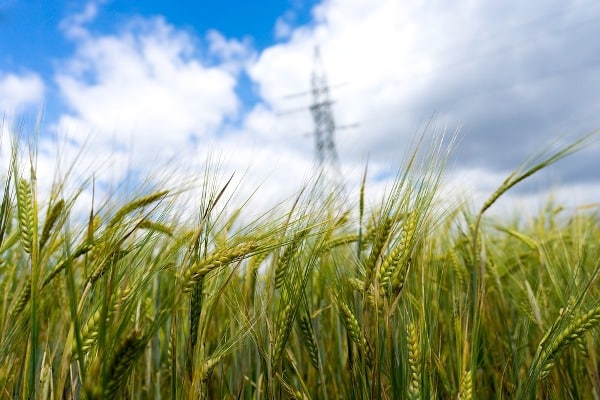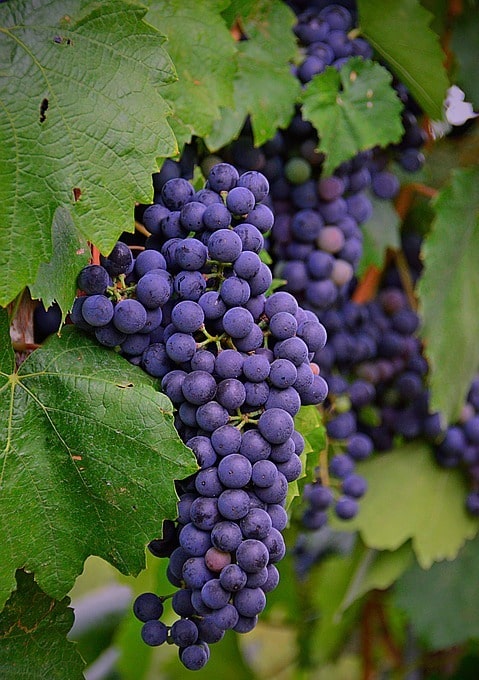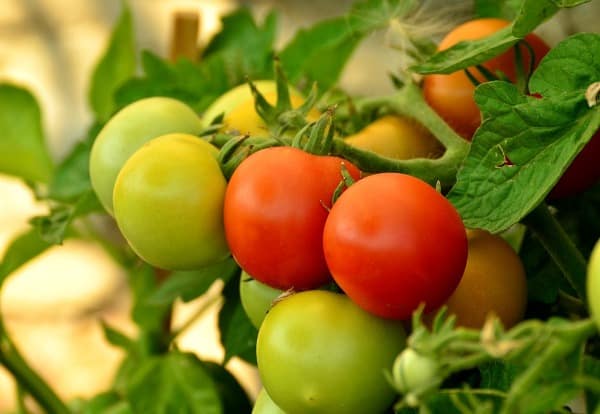Best practices of organic farming for getting high crop yield
Today, we will discuss the Best Practices of Organic Farming for higher yield.
Organic farming:
What is Organic farming? Organic farming is a technique, which involves the cultivation of plants & rearing of animals in natural ways. This process involves the use of biological materials, avoiding synthetic substances to keep soil fertility and ecological balance thereby minimizing pollution & wastage. In other words, organic farming is a farming method that involves growing & nurturing crops without the use of synthetic based fertilizers and pesticides.
Organic farming, the agricultural method that uses ecologically based pest controls & biological fertilizers derived largely from animal and plant wastes & nitrogen-fixing cover crops. Organic farming promotes the use of crop rotations & cover crops and encourages balanced predator relationships. Organic residues & nutrients produced on the farm are recycled back to the soil. Cover crops and composted manure are used to keep soil organic matter and fertility. To achieve high crop yield, you must know the best practices of organic farming.
What is meant by organic food?

Organic foods are foods produced under natural conditions, that is, without the use of chemicals in the form of fertilizers, pesticides & herbicides. They are formed from natural soil conditions.
General principles of organic production
The general principles of organic production contain;
- Protect the environment, minimize soil degradation & erosion, reduce pollution, optimize biological productivity and encourage a sound state of health
- keep long-term soil fertility by optimizing conditions for biological activity within the soil
- keep biological diversity within the system
- Recycle materials & resources to the greatest extent possible within the enterprise
- Provide attentive care that promotes health & meets the behavioral needs of livestock
- Prepare organic products, emphasizing careful processing, and handling technique in order to maintain the organic integrity at all stages of production
- Rely on renewable resources in locally organized agricultural structures
Organic agricultural practices:
Organic agricultural practices maintain, replenish and balance soil fertility to produce healthy & better-tasting crops. Organic farmers use an array of cultural & biological practices to build soil health, manage weeds and pests, and increase biodiversity. Some examples of organic farming practices consist of;
- Crop rotations to suppress disease & support beneficial insect communities
- Cover cropping to fix nitrogen
- VermiCompost to enhance soil microbes & deliver plant nutrients
- Compost and VermiCompost to build organic matter and control weeds
- Bio-pesticides & mechanical controls to manage pests and disease.

Successful Organic Farming
In organic production, farmers choose not to use some of the convenient chemical tools obtainable to other farmers. Design & management of the production system is critical to the success of the farm. Select enterprises that complement each other & choose crop rotation and tillage practices to avoid or reduce crop problems.
Yields of every organic crop vary, depending on the success of the manager. During the transition from conventional to organic, production yields are lower than conventional levels, but after a 3 to 5 year transition period, the organic yields normally increase.
The methods & materials that organic farmers use are summarized as follows:
To keep good soil structure and fertility;
- Recycled and composted crop wastes & animal manures
- The accurate soil cultivation at the right time
- Crop rotation
- Green manures and legumes
- Mulching on the soil surface
Read: Agriculture Land Preparation Methods.
What are the key conditions of organic farming?
Without any planting aids, crops have the potential to produce good yields provided all essential prerequisites & conditions are favored. These are:
- Soil life
- Soil nutrient
- Soil structure
These three conditions are the major factors that determine crop yield. Organic farming favors these factors, but inorganic farming moderately favors just one of all.
The main factors that favor crop growth in organic farming:

Below factors that favor crop growths in organic farming are;
Soil:
Organic farmers maintain the health of their soil by using manure or compost & other organic material instead of synthetic fertilizers. Biological fertilizers like compost, release nutrients slowly, increase the capacity of soil to retain moisture & reduce leaching of nitrates into groundwater. Up to 40 percent of synthetic fertilizers used on conventional farms end up in ground & surface waters, eventually polluting lakes, and oceans.
Soil type:
Another main factor that increases the yield of an organic farm is the soil type. If you crave high yield from the organic farm, then follow this duly. When you plant on the wrong soil, you are possibly going to have a bad yield at the end. The role in organic farming soil plays is;
- A medium of crop growth
- Provision of nutrients
- Provision of water for the plants
If your soil can give all these adequately, your yield would be massive. Crops love soil with high organic matter, soil with high microbial activities, soil that can conserve water and nutrients & not the ones that leach out nutrient always. These behaviors facilitate high yield. If you utilize inorganic fertilizer, all these can never be achieved, rather, they are reduced. Inorganic fertilizer makes soil devoid of all these due to its hygroscopic nature; it burns the soil & kills the soil ecosystem.
Altitude:
When a farmer complains of low yield, you inquire about the farm position. Before delving into any agribusiness, particularly crop production, you need to know the topography of the farm location. The altitude or height of the location of farmland has played an active role in the productivity of the land since the higher the altitude, the cooler the area of the farmland. The temperature of the farmland is reduced, & when the temperature is reduced the rate of activities of the soil is reduced because the rate of reactions or activities of the soil is increased with rising temperature. Examples of the soil reactions are; decay of organic matter, synthesis of crop nutrients, creation of the soil structure, etc. Hence, low temperature reduces the accessibility of nutrients to the crop, thus, reducing crop yield. The above are the two external factors affecting crop yield in crop production.
How do organic farmers control pests?
The organic farmers control pests by using all plants genetically modified for pest resistance. Organic farmers control pests and diseases by using natural predation instead of introducing chemicals.
There are three essential biological pest control strategies: importation (classical biological control), augmentation & conservation.
Importation: classical biological pest management in organic farming which introduces pest’s natural enemies to the position where they do not occur naturally. This strategy requires biological control agents with the colonizing ability & the temporal persistence in order to maintain its population and rapidly exploit a pest population.
Augmentation: Augmentation involves the supplemental discharge of natural enemies, boosting the naturally happening population. It can include a small or large release of the manage agents, depending on the pest management needs. To maintain pests at a low level, to prevent a severe attack, small release controlling agents is sufficient. However, for rapid reductions (correction) of the damaging pest population, a large number of managing agents are needed. Augmentation can be effective but is not guaranteed to work, & it relies on the understanding of the situation.
Conservation: This involves the conservation of existing natural enemies in the environment already adapted to the habitat & the target pest. Conservation pest management is generally simple and cost-effective. To favor natural enemies, cropping systems can be modified to provide an appropriate habitat. Shelterbelt, hedgerow or beetle banks give shelter where beneficial insects can live and reproduce. This enables farmers to make sure the survival of populations.
Read: Garlic Farming Project Report.
Different approaches to efficiently manage soil fertility:
An integrated soil fertility management aims at maximizing the efficiency of the agronomic use of nutrients & improving crop productivity. This can be achieved during the use of grain legumes, which enhance soil fertility through biological nitrogen fixation, & the application of chemical fertilizers.
Whether grown as pulses for grain, as green manure, or as the tree components of agroforestry systems, a key value of leguminous crops lies in their capability to fix atmospheric nitrogen, which helps reduce the use of commercial nitrogen fertilizer & enhances soil fertility. Nitrogen-fixing legumes are the source of sustainable farming systems that incorporate integrated nutrient management. Soil fertility can be improved by incorporating cover crops that contain organic matter to the soil, which leads to improved soil structure. By using green manure or growing legumes to fix nitrogen from the air through the practice of biological nitrogen fixation; by micro-dose fertilizer applications, to replenish losses through plant uptake & other processes. By minimizing losses through leaching below the crop rooting zone by improved water & nutrient application.
Soil fertility is the ability of the soil to sustain plant growth & optimize crop yield. This can be enhanced during organic and inorganic fertilizers to the soil. Nuclear techniques give data that enhances soil fertility & crop production while minimizing the environmental impact.
Improve soil fertility in an organic farm:
A fertile land increases yield; all farming activities are justified by fertile land. You can improve your soil fertility during the addition of compost manure. Compost manure is an organic matter, remains of plant & animal that has been rotted and degraded by the action of bacteria and microorganisms over a period of time. Materials like leaves, animal waste, and household waste can be used to create compost manure. It is cheap & easy to make.
Benefits of using compost manure:
- Compost manure improves the soil structure.
- Compost manure increases soil fertility by adding nutrients & making it accessible for the plant to take up and utilize easily.
- Compost supplies nutrient for a long time in the soil.
Conclusively, organic farming is a healthy method of living. Organic foods are what the body needs to settle fit. Apart from the body, it has a huge force on the environment; it reduces environmental pollution.
That’s all folks about the “Best Practices of Organic Farming for Higher Yield”.
Read: How To Start A Hydroponic Garden.